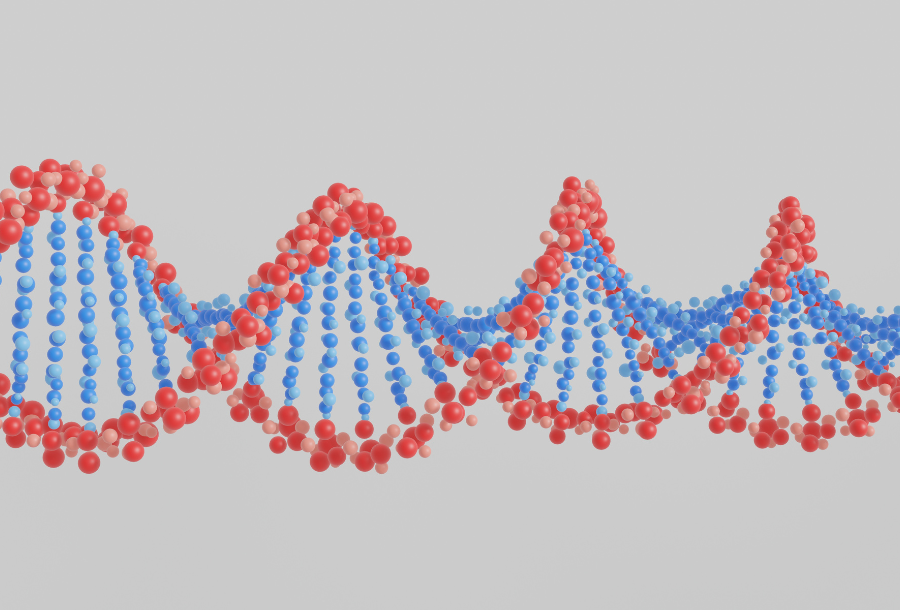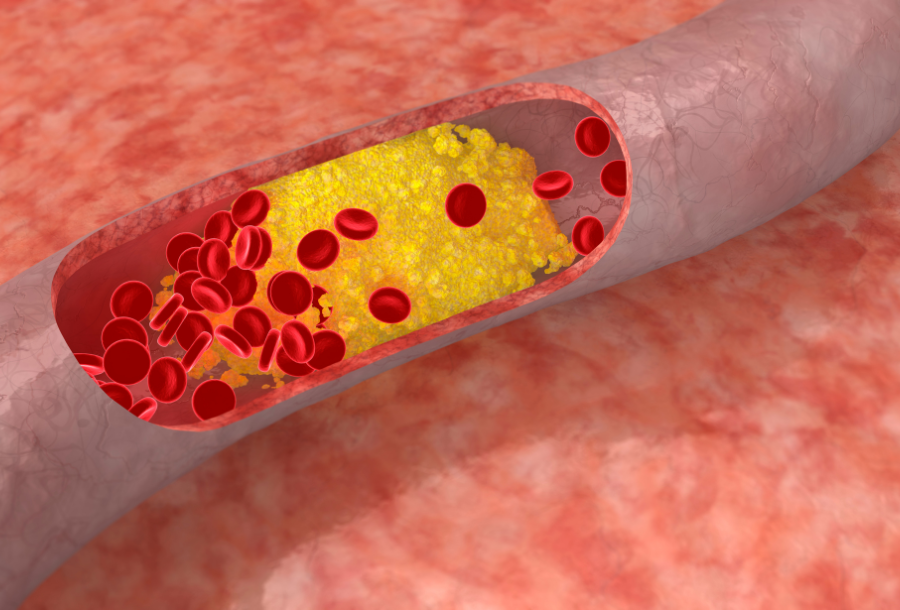
A holistic understanding of PCOS
March 9, 2022
Gain an in-depth understanding of PCOS, how it can affect fertility, and what hormones cause this condition. Discover evidence-based treatments to help manage this condition, as well as key specialists who can help you make informed decisions.
Key takeaways:
- PCOS is a hormonal disorder characterised by excess androgens and insulin.
- High levels of androgens can disrupt the menstrual cycle and impact fertility
- Too much insulin is linked to metabolic syndrome and can exacerbate hormonal imbalances.
- Lifestyle changes and medications can help manage PCOS symptoms and improve fertility.
Polycystic Ovarian Syndrome (PCOS) is a common endocrine disorder affecting up to one in five women of reproductive age. It is characterised by a hormonal imbalance, with elevated levels of androgens — male hormones — and insulin being central players. Understanding the dynamics of these key factors is essential to managing PCOS and enhancing fertility.
What is PCOS?
PCOS stands for poly-cystic ovarian syndrome:
Poly = many
Cystic = fluid-filled sack
Ovarian = in the ovaries
Syndrome = a collection of symptoms
Essentially, the underlying reason for why the ovary is producing excessive numbers of cysts is due to an excessive production of androgens and insulin.
The Androgen Effect in PCOS
Androgens are hormones usually associated with male traits, such as facial and body hair. All individuals, regardless of gender, produce these hormones, but women with PCOS often have excessively high androgen levels.
These excessive levels can lead to symptoms like hirsutism (excessive hair growth), acne and alopecia (hair loss). Moreover, high levels of androgens can interfere with ovulation, affecting fertility.
But what leads to this excessive androgen production in some women? The answer lies in a combination of genetic, environmental and metabolic factors.
Genetic Factors
Research suggests a strong genetic link to PCOS, meaning the condition often runs in families. Certain genes are believed to be involved in the overproduction of androgens in the ovaries. However, PCOS is likely to be the result of a complex interplay of numerous genes rather than the effect of a single gene.
Insulin Resistance
A significant proportion of women with PCOS have insulin resistance, which can lead to higher insulin levels. Insulin is a hormone that controls blood sugar levels. When there's resistance to its action, the body compensates by producing more insulin. This excess insulin can stimulate the ovaries to produce more androgens.
Obesity
While not a cause of PCOS, obesity can exacerbate the condition. Excess weight, particularly around the abdomen, is associated with insulin resistance, leading to higher insulin levels and thus increased androgen production. Weight loss, even if moderate, can help reduce insulin resistance and lower androgen levels.
Inflammation
Women with PCOS often have low-grade inflammation, which can stimulate the ovaries to produce androgens. This inflammation could be linked to obesity, as adipose (fat) tissue can release substances that promote inflammation.
While the exact cause of PCOS and excessive androgen production remains unclear, these factors play a significant role in the condition's development and progression. Understanding these aspects can help women with PCOS and their healthcare team devise effective management strategies, including lifestyle modifications and targeted therapies.
The Impact of Excessive Insulin on Ovulation
Insulin is a hormone that plays a vital role in regulating glucose metabolism in the body. However, when levels are persistently high, as seen with insulin resistance common in PCOS, it can have disruptive effects on ovulation, thereby affecting fertility.
Excessive insulin stimulates the ovaries to produce more androgens, including testosterone. These heightened androgen levels can disrupt the regular cycle of follicle growth and egg release in the ovaries. The result is a disturbance of the ovulation process. In some cases, an egg may not be released at all (anovulation), or it may be released infrequently or irregularly, making conception more challenging.
In addition to the direct influence on the ovaries, high insulin levels can also impact the pituitary gland, which regulates the release of hormones vital for ovulation. Excess insulin can lead to an overproduction of luteinising hormone (LH) by the pituitary gland. Elevated LH levels can further stimulate androgen production by the ovaries, creating a vicious cycle of hormonal imbalance that further hampers regular ovulation.
Recognising the Symptoms of PCOS
PCOS is a complex hormonal condition that can present a variety of symptoms that can vary widely among women. Understanding the signs of PCOS is crucial for its early detection and effective management. Here are the most common symptoms:
- Irregular Menstrual Cycles: This is one of the most common symptoms and can involve periods that are infrequent, irregular or even completely absent.
- Excessive Hair Growth (Hirsutism): This occurs due to increased androgen levels, leading to the growth of hair on the face, back, chest or other areas where men usually have hair.
- Hair Loss (Alopecia): Some women may experience thinning hair or hair loss on the scalp, similar to male-pattern baldness.
- Acne and Oily Skin: Excessive androgen levels can lead to acne or oily skin, often severe and resistant to treatment, predominantly on the face, chest and upper back.
- Weight Gain or Difficulty Losing Weight: Many women with PCOS experience weight gain or have a hard time losing weight, particularly around the waist.
- Darkening of Skin: Some women may have dark patches of skin on the neck, groin, and underneath the breasts.
- Skin Tags: These are small excess flaps of skin in the armpits or neck area.
- Fertility Issues: As PCOS can cause irregular or no ovulation, women with PCOS often experience difficulties conceiving.
- Mood Changes: Women with PCOS are more likely to experience mood disorders, including depression and anxiety.
Many women with PCOS also suffer from fatigue, poor sleep and can feel easily stressed.
Understanding the root causes and physiology (this is a fancy term for the way cells work) can help you understand the flow-on effects of prolonged and excessive secretion of androgens and insulin, the overall implications of this syndrome, and most importantly, what you can do about it.
Can PCOS be Cured?
While there's no cure for PCOS, symptoms can be effectively managed through lifestyle modifications, among other strategies. Balancing diet and engaging in regular exercise can significantly help reduce both insulin and androgen levels.
Dietary Adjustments
Adopting a balanced, nutrient-rich diet can help manage insulin and lower androgen levels in PCOS. Here are some food choices that may be beneficial:
- Low Glycaemic Index (GI) Foods: Choose foods with a low GI, like whole grains, legumes and non-starchy vegetables, as they cause a slower and more steady rise in blood sugar levels. This can prevent insulin spikes and help manage insulin resistance.
- Lean Proteins: Foods like fish, chicken, turkey and tofu can help you feel fuller for longer and stabilise your blood sugar levels.
- Healthy Fats: Monounsaturated and polyunsaturated fats found in avocados, olive oil, nuts, seeds and fatty fish can help reduce inflammation and improve insulin sensitivity.
- Fibre-rich Foods: Foods high in fibre, such as fruits, vegetables and whole grains, can help control blood sugar levels.
- Inositol: Found in foods like whole grains, citrus fruits and beans, inositol has been shown in studies to improve insulin resistance.
Regular Physical Activity
Exercise plays a vital role in managing PCOS by helping to reduce insulin resistance and lower body weight:
- Aerobic Exercise: Activities like running, cycling, swimming or even brisk walking, can help improve insulin levels and assist in weight management.
- Strength Training: Regular strength or resistance training can increase muscle mass, which can help burn more calories and improve insulin sensitivity.
- Yoga and Pilates: These exercises can help reduce stress and inflammation, both of which can contribute to PCOS symptoms.
Keep in mind that before starting any new diet or exercise regimen, it's important to consult with your healthcare provider or a dietitian to ensure it's suitable for your individual needs and circumstances. With the right combination of dietary changes and physical activity, the symptoms of PCOS can be managed effectively, improving overall health and fertility.
Seeking Help from PCOS Specialists
Diagnosis and treatment of PCOS require the assistance of healthcare professionals who have a thorough understanding of this complex condition. Early detection and treatment can significantly reduce the risk of long-term complications like type 2 diabetes and heart disease. Below are key specialists who can help manage PCOS:
- General Practitioner (GP): A GP can diagnose PCOS based on your symptoms, medical history and blood tests. They can also provide general advice on lifestyle changes and initial treatments.
- Endocrinologist: These are doctors who specialise in hormonal disorders. An endocrinologist can provide advanced guidance on managing PCOS, particularly addressing high insulin and androgen levels.
- Gynaecologist: They specialise in the female reproductive system and can offer treatments for PCOS-related menstrual disorders and fertility issues.
- Dietitian: Given the crucial role of diet in managing PCOS, consulting a dietitian can be beneficial. They can provide personalised advice on nutritional strategies to manage insulin levels and maintain a healthy weight.
- Psychologist or Psychiatrist: PCOS can take a toll on mental health, leading to anxiety, depression or body image concerns. Psychologists or psychiatrists can provide strategies to manage these psychological aspects of PCOS.
- Dermatologist: For skin and hair problems related to PCOS, such as acne or excessive hair growth, a dermatologist can provide specialised treatment options.
- Physical Therapist: Regular exercise is a crucial part of managing PCOS. A physical therapist can provide a tailored exercise program to help manage weight and improve insulin sensitivity.
Remember that managing PCOS is a team effort. Regularly communicating with your healthcare team and using health management tools like Vively can ensure you're actively participating in your health journey and making informed decisions.
Vively is a metabolic health app that offers a valuable tool for managing PCOS. By tracking your glucose levels, you can get real-time feedback on how different foods affect your blood sugar, helping you make healthier choices.
Meet our team.
Subscribe to our newsletter & join a community of 20,000+ Aussies
Get access to limited content drops, free invites to expert fireside chats, and exclusive offers.

A holistic understanding of PCOS
Gain an in-depth understanding of PCOS, how it can affect fertility, and what hormones cause this condition. Discover evidence-based treatments to help manage this condition, as well as key specialists who can help you make informed decisions.
Key takeaways:
- PCOS is a hormonal disorder characterised by excess androgens and insulin.
- High levels of androgens can disrupt the menstrual cycle and impact fertility
- Too much insulin is linked to metabolic syndrome and can exacerbate hormonal imbalances.
- Lifestyle changes and medications can help manage PCOS symptoms and improve fertility.
Polycystic Ovarian Syndrome (PCOS) is a common endocrine disorder affecting up to one in five women of reproductive age. It is characterised by a hormonal imbalance, with elevated levels of androgens — male hormones — and insulin being central players. Understanding the dynamics of these key factors is essential to managing PCOS and enhancing fertility.
What is PCOS?
PCOS stands for poly-cystic ovarian syndrome:
Poly = many
Cystic = fluid-filled sack
Ovarian = in the ovaries
Syndrome = a collection of symptoms
Essentially, the underlying reason for why the ovary is producing excessive numbers of cysts is due to an excessive production of androgens and insulin.
The Androgen Effect in PCOS
Androgens are hormones usually associated with male traits, such as facial and body hair. All individuals, regardless of gender, produce these hormones, but women with PCOS often have excessively high androgen levels.
These excessive levels can lead to symptoms like hirsutism (excessive hair growth), acne and alopecia (hair loss). Moreover, high levels of androgens can interfere with ovulation, affecting fertility.
But what leads to this excessive androgen production in some women? The answer lies in a combination of genetic, environmental and metabolic factors.
Genetic Factors
Research suggests a strong genetic link to PCOS, meaning the condition often runs in families. Certain genes are believed to be involved in the overproduction of androgens in the ovaries. However, PCOS is likely to be the result of a complex interplay of numerous genes rather than the effect of a single gene.
Insulin Resistance
A significant proportion of women with PCOS have insulin resistance, which can lead to higher insulin levels. Insulin is a hormone that controls blood sugar levels. When there's resistance to its action, the body compensates by producing more insulin. This excess insulin can stimulate the ovaries to produce more androgens.
Obesity
While not a cause of PCOS, obesity can exacerbate the condition. Excess weight, particularly around the abdomen, is associated with insulin resistance, leading to higher insulin levels and thus increased androgen production. Weight loss, even if moderate, can help reduce insulin resistance and lower androgen levels.
Inflammation
Women with PCOS often have low-grade inflammation, which can stimulate the ovaries to produce androgens. This inflammation could be linked to obesity, as adipose (fat) tissue can release substances that promote inflammation.
While the exact cause of PCOS and excessive androgen production remains unclear, these factors play a significant role in the condition's development and progression. Understanding these aspects can help women with PCOS and their healthcare team devise effective management strategies, including lifestyle modifications and targeted therapies.
The Impact of Excessive Insulin on Ovulation
Insulin is a hormone that plays a vital role in regulating glucose metabolism in the body. However, when levels are persistently high, as seen with insulin resistance common in PCOS, it can have disruptive effects on ovulation, thereby affecting fertility.
Excessive insulin stimulates the ovaries to produce more androgens, including testosterone. These heightened androgen levels can disrupt the regular cycle of follicle growth and egg release in the ovaries. The result is a disturbance of the ovulation process. In some cases, an egg may not be released at all (anovulation), or it may be released infrequently or irregularly, making conception more challenging.
In addition to the direct influence on the ovaries, high insulin levels can also impact the pituitary gland, which regulates the release of hormones vital for ovulation. Excess insulin can lead to an overproduction of luteinising hormone (LH) by the pituitary gland. Elevated LH levels can further stimulate androgen production by the ovaries, creating a vicious cycle of hormonal imbalance that further hampers regular ovulation.
Recognising the Symptoms of PCOS
PCOS is a complex hormonal condition that can present a variety of symptoms that can vary widely among women. Understanding the signs of PCOS is crucial for its early detection and effective management. Here are the most common symptoms:
- Irregular Menstrual Cycles: This is one of the most common symptoms and can involve periods that are infrequent, irregular or even completely absent.
- Excessive Hair Growth (Hirsutism): This occurs due to increased androgen levels, leading to the growth of hair on the face, back, chest or other areas where men usually have hair.
- Hair Loss (Alopecia): Some women may experience thinning hair or hair loss on the scalp, similar to male-pattern baldness.
- Acne and Oily Skin: Excessive androgen levels can lead to acne or oily skin, often severe and resistant to treatment, predominantly on the face, chest and upper back.
- Weight Gain or Difficulty Losing Weight: Many women with PCOS experience weight gain or have a hard time losing weight, particularly around the waist.
- Darkening of Skin: Some women may have dark patches of skin on the neck, groin, and underneath the breasts.
- Skin Tags: These are small excess flaps of skin in the armpits or neck area.
- Fertility Issues: As PCOS can cause irregular or no ovulation, women with PCOS often experience difficulties conceiving.
- Mood Changes: Women with PCOS are more likely to experience mood disorders, including depression and anxiety.
Many women with PCOS also suffer from fatigue, poor sleep and can feel easily stressed.
Understanding the root causes and physiology (this is a fancy term for the way cells work) can help you understand the flow-on effects of prolonged and excessive secretion of androgens and insulin, the overall implications of this syndrome, and most importantly, what you can do about it.
Can PCOS be Cured?
While there's no cure for PCOS, symptoms can be effectively managed through lifestyle modifications, among other strategies. Balancing diet and engaging in regular exercise can significantly help reduce both insulin and androgen levels.
Dietary Adjustments
Adopting a balanced, nutrient-rich diet can help manage insulin and lower androgen levels in PCOS. Here are some food choices that may be beneficial:
- Low Glycaemic Index (GI) Foods: Choose foods with a low GI, like whole grains, legumes and non-starchy vegetables, as they cause a slower and more steady rise in blood sugar levels. This can prevent insulin spikes and help manage insulin resistance.
- Lean Proteins: Foods like fish, chicken, turkey and tofu can help you feel fuller for longer and stabilise your blood sugar levels.
- Healthy Fats: Monounsaturated and polyunsaturated fats found in avocados, olive oil, nuts, seeds and fatty fish can help reduce inflammation and improve insulin sensitivity.
- Fibre-rich Foods: Foods high in fibre, such as fruits, vegetables and whole grains, can help control blood sugar levels.
- Inositol: Found in foods like whole grains, citrus fruits and beans, inositol has been shown in studies to improve insulin resistance.
Regular Physical Activity
Exercise plays a vital role in managing PCOS by helping to reduce insulin resistance and lower body weight:
- Aerobic Exercise: Activities like running, cycling, swimming or even brisk walking, can help improve insulin levels and assist in weight management.
- Strength Training: Regular strength or resistance training can increase muscle mass, which can help burn more calories and improve insulin sensitivity.
- Yoga and Pilates: These exercises can help reduce stress and inflammation, both of which can contribute to PCOS symptoms.
Keep in mind that before starting any new diet or exercise regimen, it's important to consult with your healthcare provider or a dietitian to ensure it's suitable for your individual needs and circumstances. With the right combination of dietary changes and physical activity, the symptoms of PCOS can be managed effectively, improving overall health and fertility.
Seeking Help from PCOS Specialists
Diagnosis and treatment of PCOS require the assistance of healthcare professionals who have a thorough understanding of this complex condition. Early detection and treatment can significantly reduce the risk of long-term complications like type 2 diabetes and heart disease. Below are key specialists who can help manage PCOS:
- General Practitioner (GP): A GP can diagnose PCOS based on your symptoms, medical history and blood tests. They can also provide general advice on lifestyle changes and initial treatments.
- Endocrinologist: These are doctors who specialise in hormonal disorders. An endocrinologist can provide advanced guidance on managing PCOS, particularly addressing high insulin and androgen levels.
- Gynaecologist: They specialise in the female reproductive system and can offer treatments for PCOS-related menstrual disorders and fertility issues.
- Dietitian: Given the crucial role of diet in managing PCOS, consulting a dietitian can be beneficial. They can provide personalised advice on nutritional strategies to manage insulin levels and maintain a healthy weight.
- Psychologist or Psychiatrist: PCOS can take a toll on mental health, leading to anxiety, depression or body image concerns. Psychologists or psychiatrists can provide strategies to manage these psychological aspects of PCOS.
- Dermatologist: For skin and hair problems related to PCOS, such as acne or excessive hair growth, a dermatologist can provide specialised treatment options.
- Physical Therapist: Regular exercise is a crucial part of managing PCOS. A physical therapist can provide a tailored exercise program to help manage weight and improve insulin sensitivity.
Remember that managing PCOS is a team effort. Regularly communicating with your healthcare team and using health management tools like Vively can ensure you're actively participating in your health journey and making informed decisions.
Vively is a metabolic health app that offers a valuable tool for managing PCOS. By tracking your glucose levels, you can get real-time feedback on how different foods affect your blood sugar, helping you make healthier choices.
Get irrefutable data about your diet and lifestyle by using your own glucose data with Vively’s CGM Program. We’re currently offering a 20% discount for our annual plan. Sign up here.
Next articles

Understanding the causes of insulin resistance
Unravel the mystery of insulin resistance, its causes and implications for your health. Explore evidence-based strategies to prevent and manage this condition and optimise your metabolic health.



 Share
Share Tweet
Tweet Share
Share














